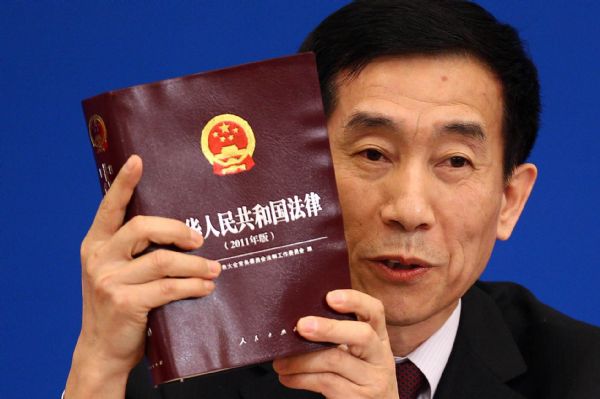
Li Fei, deputy director of the Legislative Affairs Commission of the National People's Congress (NPC) Standing Committee, attends a press conference of the Fourth Session of the 11th National People's Congress (NPC) on the formation and perfection of Socialist legal system with Chinese characteristics in Beijing, capital of China, March 10, 2011. (Xinhua/Chen Jianli)
BEIJING, March 10 (Xinhua) -- Extensive channels of public participation, down-to-earth research on public demands and careful assessment on the feasibility of laws are the good practices that Chinese law-makers have learnt to improve legislation quality, a national legislator said Thursday.
Since 2008, China's top legislature had published more than 30 draft laws on its website. In this way the public became more involved in legislation through submitting proposals via the Internet, said Li Fei, deputy director of the Legislative Affairs Commission of the Standing Committee of the National People's Congress (NPC), the top legislature.
To improve laws and law drafts, the top legislature had mobilized legislators at various levels to solicit suggestions and opinions from research institutes and businesses, he told a press conference on the sidelines of the ongoing annual session of the top legislature.
Law-makers had also conducted in-depth research during visits to grassroots communities and people before making legal revisions, according to Li.
In addition, the top legislature had frequently carried out assessment work to ensure that a legislation is feasible, functional and practical, he said.
